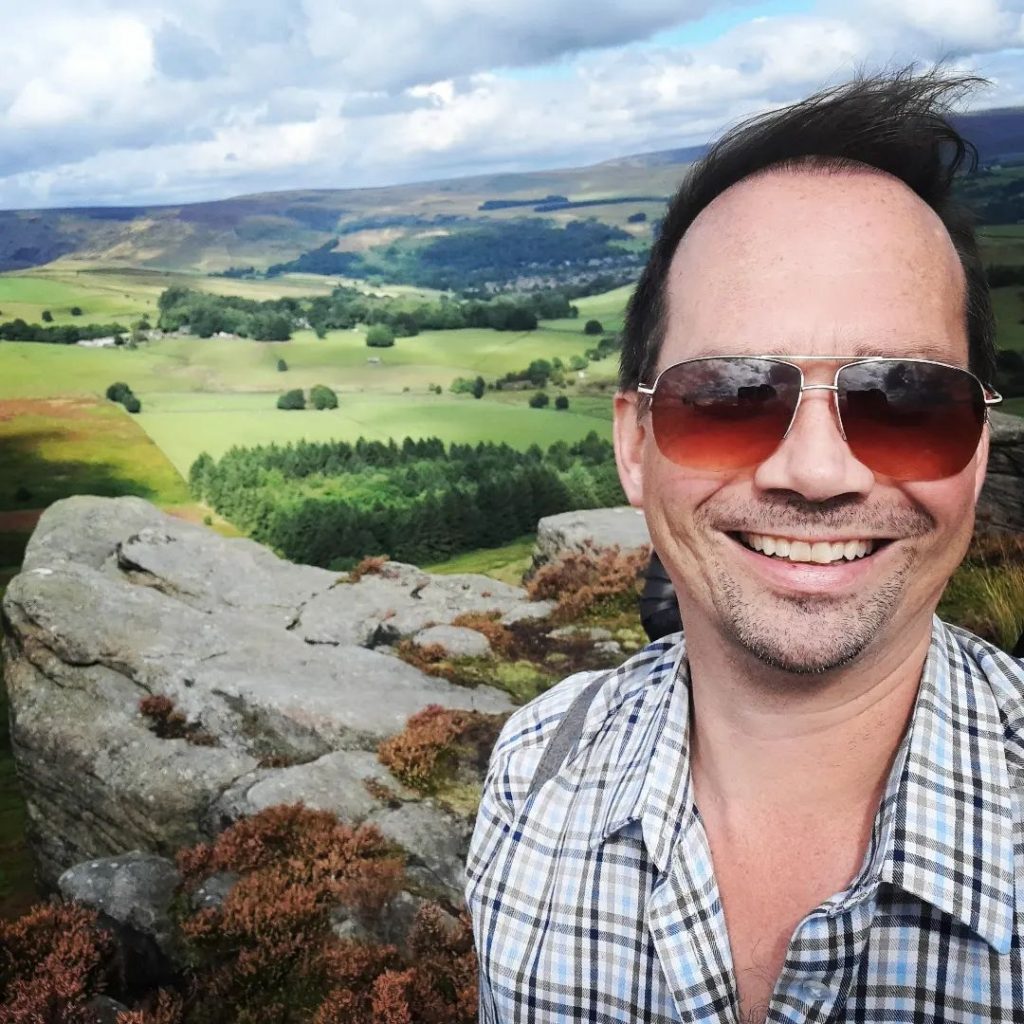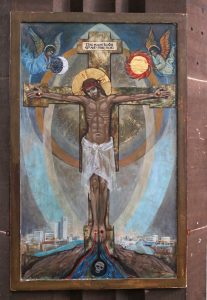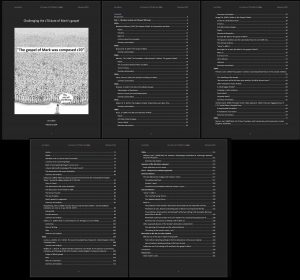
Lev’s Experience as a PhD Researcher in Religions and Theology
Lev is a 3rd year postgraduate research student completing his PhD in Religions and Theology in our School of Arts, Languages and Cultures. His decision to study at Manchester were a combination of the university’s reputation and having local friends. We interviewed him about his research experience.
He desibes his research and objectives as:
”I’m challenging the scholarly consensus concerning the dating of the Gospel of Mark in the Christian bible. Most date it around AD 70, but I believe I’ve found enough evidence to place it in AD 43. This is important for biblical scholars as Mark’s gospel is the earliest canonical gospel, and if it were dated to 43 instead of 70, that would mean it was composed within 13 years of the crucifixion of Jesus – and comfortably within the lifetime of most of the eyewitnesses.”

Crucifixion of Christ – Manchester Catherdral
If this is so, then it stands a good chance of being more accurate than not, as the eyewitnesses would act as a control group over the contents.”
What distinguishes research in Religions and Theology from other academic disciplines?
”Theologians are concerned with the divine realm and how humanity interacts with it. Many of us (but by no means all) are people of faith who try to make sense of this interaction. Often we’re concerned with ancient texts, or contemporary issues and the interplay between divinity and humanity. I don’t think you get that in other disciplines – although there’s a lot of overlap with the Classics department.”
What qualities and skills do you believe are essential for success as a PhD researcher?
”Great question! The single most important piece of advice I could give anyone considering a PhD is to pick a research topic that you’re obsessed with. I’ve come across too many PhD students who have a really hard time getting through it because they find it a drag.
You want to pick something that you spend every day thinking about, where you have to force yourself to hang up the keyboard and leave your office or desk as you’ve overdone it again. It’s not unusual that I leave my office at 8 or 9pm, only to carry on when I get home. I just can’t leave it alone – I’m obsessed with my research and love every minute of it!”

Research Contents – Challenging the c70 of Mark’s Gospel
What does a typical week at your current research stage look like?
”I usually work on my research 6 or 7 days a week, although I have tried to take a clear day off every week with variable success. If I feel like I’m overdoing it I force myself to take some time off. I relax with a combination of seeing friends, watching TV, going to the pub, and playing computer games. I also cycle a lot – but I would say 60-70% of my waking hours are spent on my research.”
What are your aspirations for when you finish your PhD studies?
”I would love to do a post-doc and research the dating for Q, the gospel according to the Hebrews (GHeb) and Matthew. I’ve already covered quite a bit of ground there already, and I think I have found some pretty convincing evidence to overturn the usual date of GHeb. I’m hoping I can get into Durham, but we’ll see.”






0 Comments